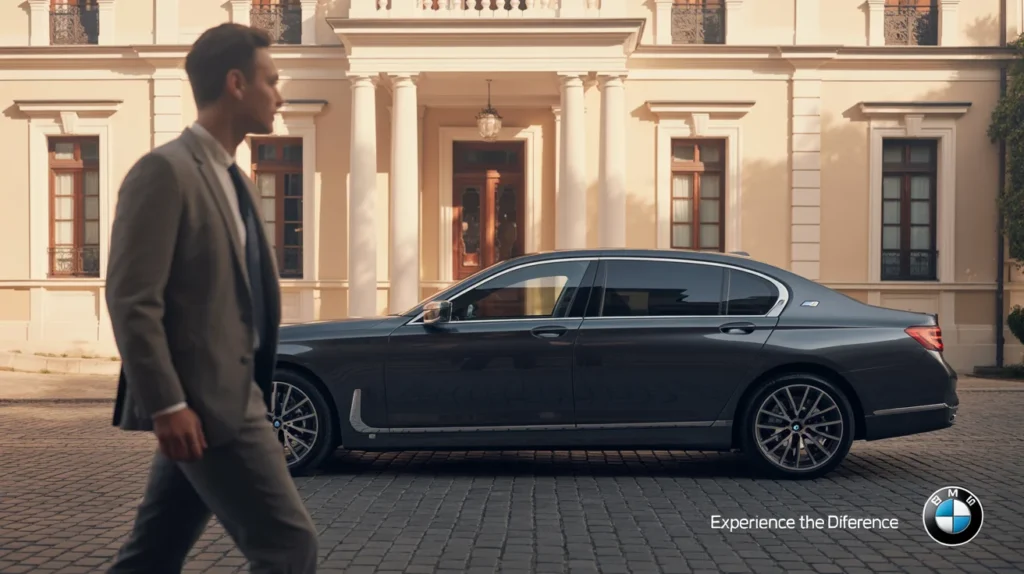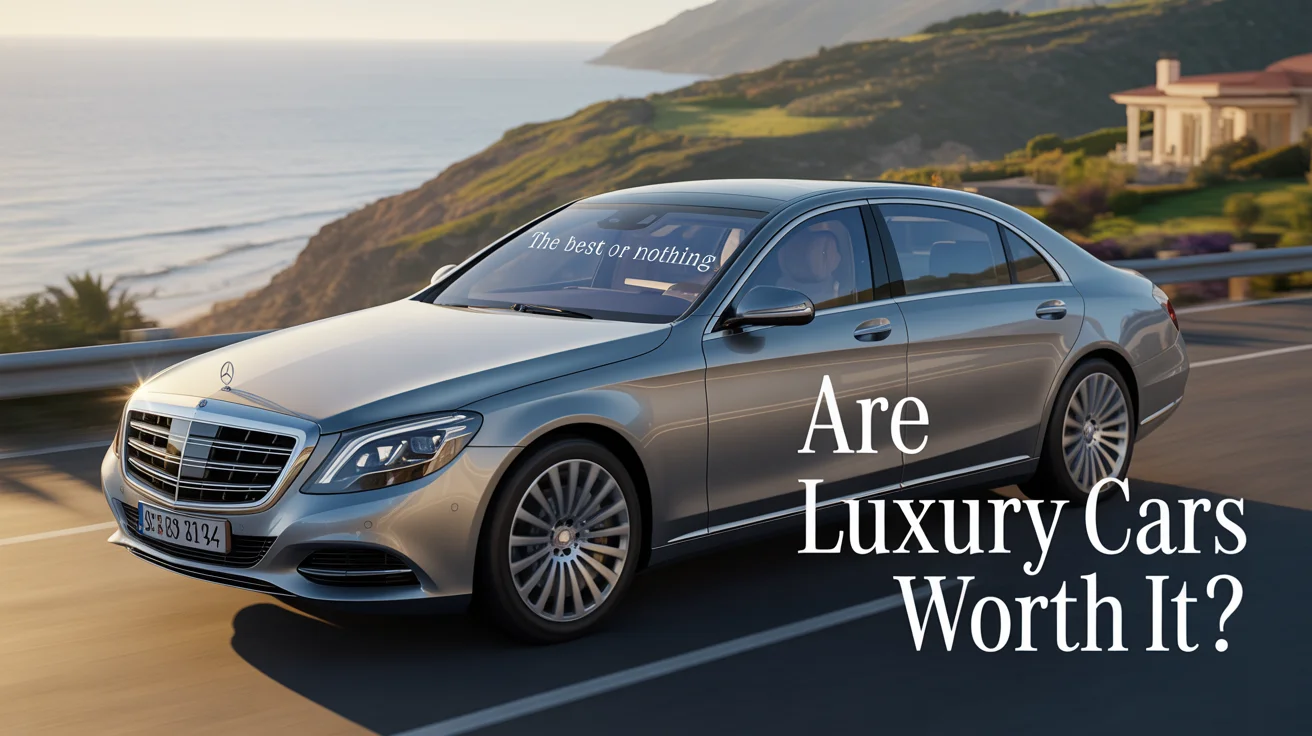Are Luxury Cars Worth It? A Deep Dive into Value and Prestige
When people ask are luxury cars worth it, the answer isn’t as simple as yes or no. This decision depends on lifestyle, budget, long-term goals, and personal priorities. For some, it’s about comfort and performance. For others, it’s about image and experience.
This blog explores whether buying a luxury vehicle is genuinely worth the high cost, and what benefits or drawbacks may influence your choice.
To help you make a more informed decision, we’ll evaluate cost, features, value retention, and emotional impact. We’ll also include practical insights and answer common questions that matter to car buyers today.
Initial Investment vs Long-Term Value
Luxury cars often come with a significantly higher price tag than standard vehicles. But does this mean they provide better long-term value?
In many cases, luxury vehicles depreciate faster than regular cars. That’s because their high-tech features, once new and desirable, quickly become outdated. While they may hold prestige initially, their resale value tends to drop more steeply within the first five years.
However, some luxury brands, such as Lexus and Porsche, are known for their better reliability and for holding their value longer. Therefore, if you’re focused on resale or long-term ownership, selecting the right brand is crucial.
Features, Comfort, and Driving Experience
Luxury cars are packed with high-end features that elevate the driving experience. From hand-stitched leather seats to precision engineering, the level of detail is unmatched.
The smoother suspension, advanced sound insulation, and innovative safety tech create a ride that’s both quieter and more refined. This makes long drives less tiring and daily commutes more enjoyable.
But do these comforts justify the price difference compared to non-luxury models?
Let’s explore that further.
Advantages you get with luxury cars include:
- Superior cabin materials like Nappa leather, real wood, and brushed aluminium
- Advanced infotainment systems with seamless connectivity
- Cutting-edge safety features, including adaptive cruise and lane assist
- Quieter rides with acoustic glass and enhanced soundproofing
- Performance engines that deliver power and smooth acceleration
Maintenance Costs and Insurance Impacts
One of the overlooked aspects when asking are luxury cars worth it is the cost of maintenance and insurance. These cars often require specialized parts and service, which can drive up the long-term ownership costs.
Luxury cars are also more expensive to insure, partly due to their high repair costs and theft risk. That can add thousands of dollars over the life of the car, even with a clean driving record.
In contrast, standard cars typically come with affordable upkeep and insurance. So, if budget is a primary concern, the long-term cost of luxury cars might not be ideal.
Emotional Satisfaction and Status Appeal

The emotional appeal of driving a luxury car can’t be ignored. For many buyers, it’s more than just transportation; it’s an experience, a lifestyle, and even a status symbol.
Luxury cars often reflect success and can boost confidence. The visual presence, the sound of the engine, and the feel of the interior all create a sense of personal achievement.
But it’s worth asking: Is the emotional high worth the financial hit?
Here are common reasons people still choose luxury over practicality:
- Personal pride and fulfilment
- Making a strong impression in business or social circles
- Desire for top-tier driving performance
- Love for brand heritage (e.g., Mercedes-Benz, BMW, Audi)
Environmental Impact and Fuel Efficiency
Modern luxury cars now include more eco-friendly options. Brands like Tesla, BMW, and Audi have introduced electric and hybrid models that offer high efficiency and low emissions.
These green alternatives combine sustainability with performance. Yet, the higher price still applies, even for electric models. So, the question remains: Is it better to invest in a luxury electric vehicle or choose an affordable hybrid?
Key Considerations Before Buying a Luxury Car
Let’s break down some vital factors before investing in a luxury ride:
- Budget Alignment: Can you afford the car without compromising other financial goals?
- Ownership Goals: Will you keep it long-term, or plan to trade it in within a few years?
- Usage Type: Will it be used for daily commuting or just weekend drives?
- Brand Reliability: Some brands are more reliable and cost-efficient than others.
- Resale Value: Consider models that retain value better over time.
Technology Integration and Future-Proofing
Luxury vehicles often introduce groundbreaking technology before it reaches mainstream cars. Features such as AI-assisted driving, 360° cameras, and gesture controls provide a futuristic experience. These advancements enhance comfort, safety, and driving ease.
However, automotive tech evolves rapidly. What feels cutting-edge today may become standard in mid-range cars tomorrow. It’s wise to invest in updates or select models that are known for their long-term software support.
Luxury vs Practical: Which One Fits Your Lifestyle?
If you’re wondering whether a luxury car suits your lifestyle, consider what matters most. If comfort, performance, and prestige are priorities, and you have the budget, then luxury may be worth it.
However, if you’re focused on cost efficiency, reliability, and functionality, a standard model with innovative features might be a better fit.
Some benefits of choosing a non-luxury car include:
- Lower insurance and registration fees
- Easier and cheaper maintenance
- Better fuel economy in most cases
- Slower depreciation rate in specific models
- More value for the average driver’s needs
Conclusion: Weighing the Trade-Offs
Luxury black cars offer unmatched comfort, style, and innovation. They’re often a symbol of success and personal taste. But with that elegance comes a higher cost of ownership.
Some buyers feel the added prestige and features justify the expense. Others may find better value in practical, fuel-efficient alternatives. It all depends on your personal needs and lifestyle.
Before buying, think beyond the brand. Consider long-term maintenance, resale value, and day-to-day usability. A wise decision strikes a balance between passion and practicality.
Frequently Asked Questions:
Q1: Do luxury cars last longer than regular cars?
Not always. Some luxury brands are very reliable, but others may have high maintenance needs that shorten their practical lifespan.
Q2: Are luxury cars safer?
They often come with advanced safety features first, but many of these technologies filter into standard cars within a few years.
Q3: Is it better to lease or buy a luxury car?
Leasing can be innovative if you want the latest model every few years. Buying makes sense if you plan to keep the car in the long term.
Q4: Are luxury cars worth it?
A: Luxury cars offer advanced features, superior comfort, and high-end branding. If those align with your lifestyle and budget, they can be worth it.
Q5: Are luxury electric vehicles worth the price?
If sustainability and performance are priorities, luxury EVs can be worth it. But budget EVs now offer impressive value, too.


